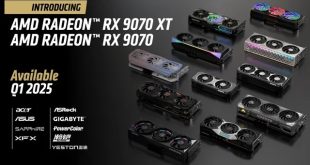It's uncommon to see overclockers pushing iGPUs to their limit, but that doesn't mean they can't do it. An overclocker has recently pushed the RDNA 2-based iGPU of an AMD Ryzen 9 7900 to new heights effortlessly, clocking it at 3.1GHz and improving its performance by up to 42%.
Inside the Ryzen 7000 desktop parts, there's an RDNA2-based integrated GPU capable of basic graphics tasks like text processing, browsing and media consumption. However, this iGPU lacks the power to deliver an even barely decent experience for gaming. After all, it only packs two CUs clocked at 2.2GHz.
Even so, that didn't stop SkatterBencher (via Wccftech) from trying it on a few games and synthetic graphics benchmarks. The overclocker ran a series of tests at stock settings using a Gigabyte B650E Aorus Tachyon motherboard to run the AMD Ryzen 9 7900 CPU. Then the tests were rerun with the chip overclocked using two OC strategies: PBO + EXPO and Curve Optimizer.
Using the PBO+ EXPO strategy, performance was slightly increased over stock, but not more than 5% on average. On the other hand, using the Curve Optimizer strategy, the overclocker registered considerable gains in most games, with some improving by up to 42%. Using this strategy, the GPU clock was pushed to 3.1GHz, and the SOC's power consumption increased to 60.6W (from 38.5W at stock). Moreover, the GPU temperature topped at 53ºC (38.4ºC at stock).
Discuss on our Facebook page, HERE.
KitGuru says: Do you own a Ryzen 7000 series desktop chip? Have you ever overclocked the iGPU?
 KitGuru KitGuru.net – Tech News | Hardware News | Hardware Reviews | IOS | Mobile | Gaming | Graphics Cards
KitGuru KitGuru.net – Tech News | Hardware News | Hardware Reviews | IOS | Mobile | Gaming | Graphics Cards

